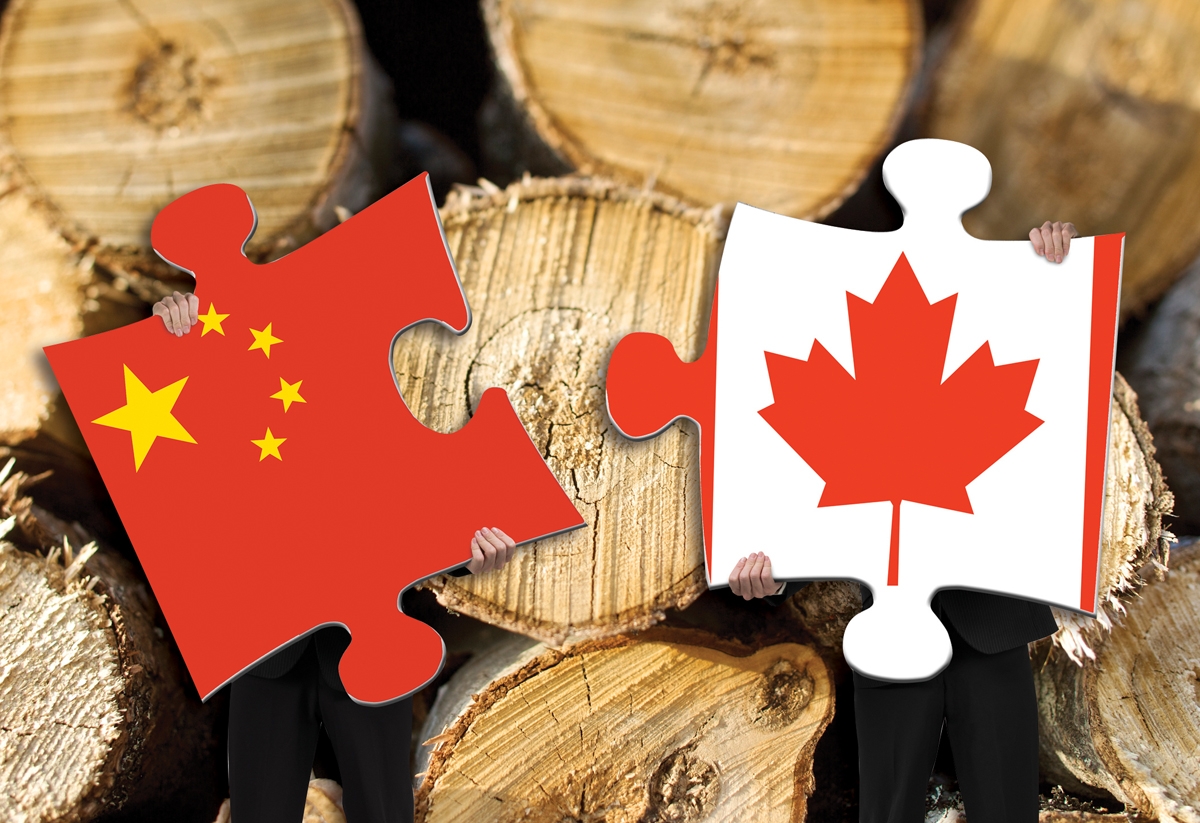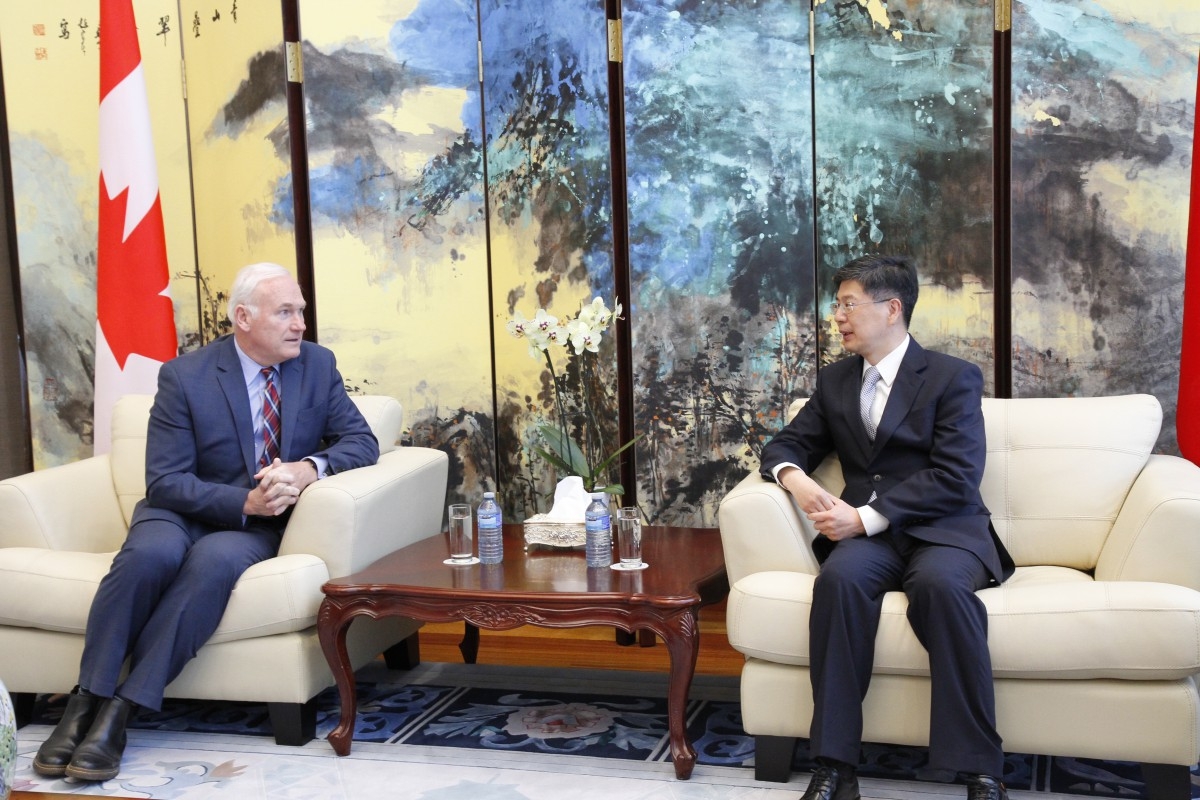
The opportunities and the tensions in the Canada-China relationship
An Ottawa Life Magazine exclusive interview with China’s new ambassador to Canada, Cong Peiwu.
OTTAWA: China’s new Ambassador to Canada, Cong Peiwu, walks into the meeting room at the Chinese Embassy and greets me with a warm smile and a firm handshake. He is dressed in a sharp looking business suit and tie and I get the impression he would be as comfortable in a meeting with a room of professional tech executives in Kanata or at a gathering of Ambassadors at a United Nations event.
He is friendly with a pleasant demeanor, courteous to a fault, and enthusiastic about being back in Canada.
We talk about our children and the coming winter. Cong is familiar with Ottawa and lived here from 2000-2003 when he served as the First Secretary at the Chinese Embassy. I ask him how long his first assignment here was. He smiles and says, ‘I arrived in January (2000) but people in the diplomatic community usually don’t say how long were you in Ottawa, they say how many winters were you there,’ and we laugh. Cong says that he is looking forward to skating here with his teenage daughter and ‘maybe she will learn to ski’. We talk a bit more about the wonderful fall colours that have just passed, and the recent celebration at the Embassy to honour the legacy of one of China’s most revered and heroic figures, Dr. Norman Bethune, the Canadian doctor who was also a close confidant and friend to Chairman Mao. It is quite apparent that Cong genuinely likes Ottawa, Canadians, Canada, and is pleased to be back.
Ambassador Cong presented his credentials to governor general, the Right Honourable Julie Payette, on November 1, 2019. He will now be at the centre of the limelight as China and Canada try to navigate a way out of the current tensions that began last December and quickly escalated with the arrest of Huawei senior executive Meng Wanzhou, in Vancouver. Meng isn't charged with a crime in Canada and was detained on a provisional arrest warrant, under the terms of an extradition treaty between Canada and the United States. Her extradition case is slowly making its way through the courts.
Ten days after her arrest, Canadians Michael Kovrig and Michael Spavor were detained in China on espionage allegations. Since then, China stopped buying large quantities of Canadian canola, blocked Canadian meat imports, and tightened up the screening of many other imports. Just this past week there seemed to be a minor thaw in the frigid affairs when Chinese officials accepted a Canadian proposal to re-open their market to Canadian beef imports.
It is highly ironic that it was Justin Trudeau’s father, former Prime Minister Pierre Elliott Trudeau, who first engaged China in 1970, pre-dating even Richard Nixon and the Americans to make Canada one of the first Western countries to establish formal diplomatic relations with China. Trudeau senior took great care to establish strong bilateral relations with China based on mutual respect and understanding and goodwill. The Chinese believe this has been severely damaged by the Justin Trudeau Liberal government. With the 50th Anniversary of Canada-China Diplomatic Relations in 2020 just a few months away, a new Canadian Ambassador in Beijing and a newly elected minority government (still led by Prime Minister Justin Trudeau, whose majority was weakened as a result of the fall election), there is hope that Canada and China can reset the relationship and get it back on track.
It is with this backdrop that I sat down with Ambassador Cong to ask about the way forward from the Chinese perspective. The interview covered opportunities for Canadian businesses attending the second China International Import Expo (CIIE) taking place in Shanghai this month, China’s reform and opening-up policy including the Belt and Road Initiative, trade and import/export concerns, bi-lateral tensions arising from the Meng Wanzhou arrest, and the Chinese response and people-to-people cooperation.
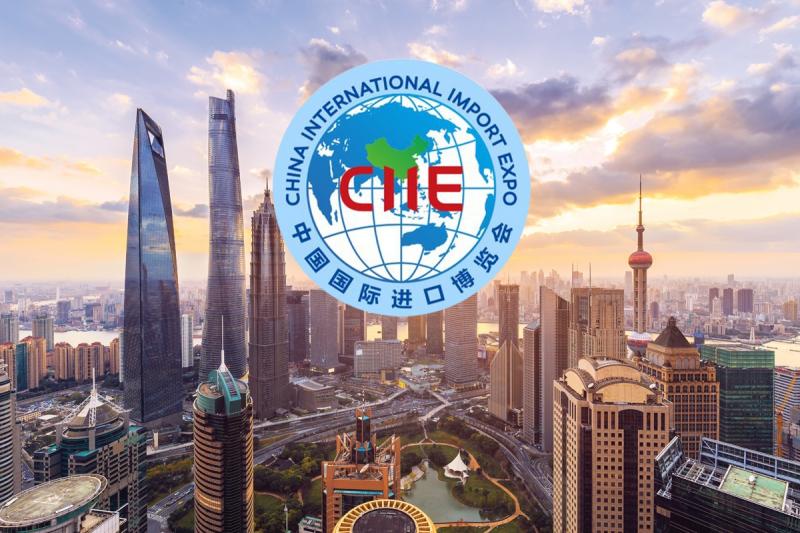
The second China International Import Expo (CIIE) and business in China
Ottawa Life Magazine: The second China International Import Expo (CIIE) taking place in Shanghai on November 5-10, 2019 is China’s invitation to governments, businesses, exhibitors and professional purchasers all over the world to participate in trade and services and in the global economy with China. Are you encouraging Canadian companies to attend this Expo? Some Canadian citizens and business have expressed nervousness about doing business with China right now because of the uncertainty. What would you say to them?
Ambassador Cong Peiwu: The uncertainty of China’s market is zero, while China’s determination to expand opening-up is 100 per cent. The China market continues to expand and open. My message to Canadian companies is to invest and develop in China. The CIIE is an example of this high level of opening-up and providing market access to the world. If you look around there is no country in the world having this kind of desire to increase imports. Most countries focused on exports. President Xi recently proposed three initiatives to jointly build an open world economy through cooperation, innovation and mutual benefits and declared five major measures including continue to open up China’s market, continue to optimize China’s opening-up structure, continue to improve China’s business environment, continue to deepen multilateral and bilateral cooperation and continue to advance Belt and Road cooperation .
This year more than 3000 companies from 150 countries will be in Shanghai for CIIE including many of the top industry leaders from around the world.
Despite the challenges, the Canadian side’s eagerness to be there and participate has not diminished. There are nearly the same number of Canadian exhibitors this year, but they are doing larger exhibitions. Last year, Canadians signed $1.67 billion in contracts.
So, this is the message I want to send to Canadian companies. The China market is full of opportunities and is very strong. Canadian companies are welcome to be actively participating in the Chinese opening-up and economy. This is good for bi-lateral relationship and for business-to-business ties.
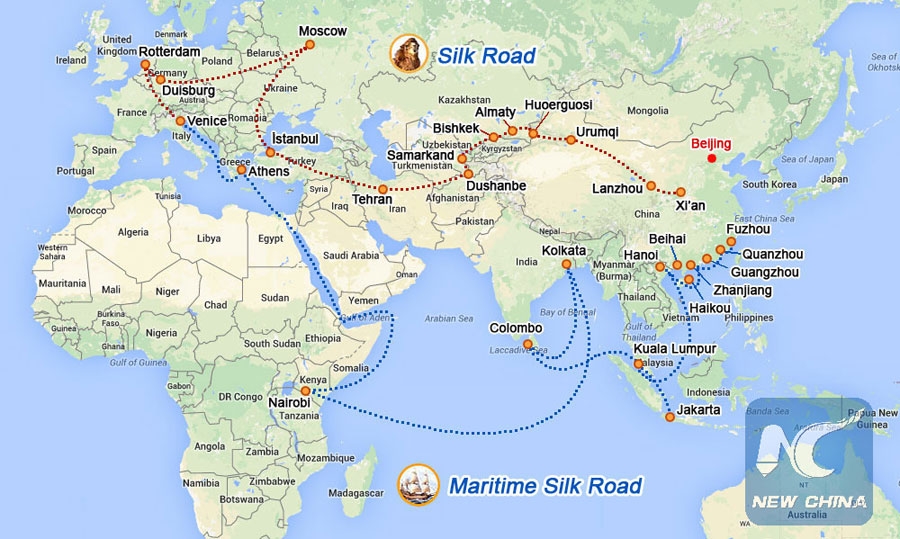
China's reform and opening-up policy and China's economy
Ottawa Life Magazine: Last December marked the 40th anniversary of China’s reform and opening-up policy, which was launched under the leadership of Deng Xiaoping when he introduced private business and market incentives to the Chinese economy. China is now the second largest economy in the world and is listed in World Bank’s Middle-Income Countries (MICs) based upon GNI per capita. The Belt and Road Initiative is another successful major economic initiative of China. What are Chinese priorities for the opening-up policy in the next decade?
Note: Announced in 2013, the Belt and Road Initiative (BRI), also known as One Belt, One Road) aims to strengthen China’s connectivity with the world and is the most ambitious infrastructure investment effort in history. It combines new and old projects, covers an expansive geographic scope, and includes efforts to strengthen hard infrastructure, soft infrastructure, and cultural ties. As of October 2019, the plan touches 150 countries with a combined Gross Domestic Product of $29 trillion and some 4.6 billion people.
Ambassador Cong Peiwu: China’s reform and opening up is an on-going process with no end point.
The Communist Party of China (CPC) has just concluded the fourth plenary session of the 19th Central Committee. A decision was made to further uphold and improve the socialist system with Chinese characteristics and to modernize the country’s system and capacity for governance. More than 150 countries are participating in the Belt and Road Initiative, and we welcome the Canadian side and Canadian companies to participate. There are opportunities in the energy sector, financial services, technology and other areas.
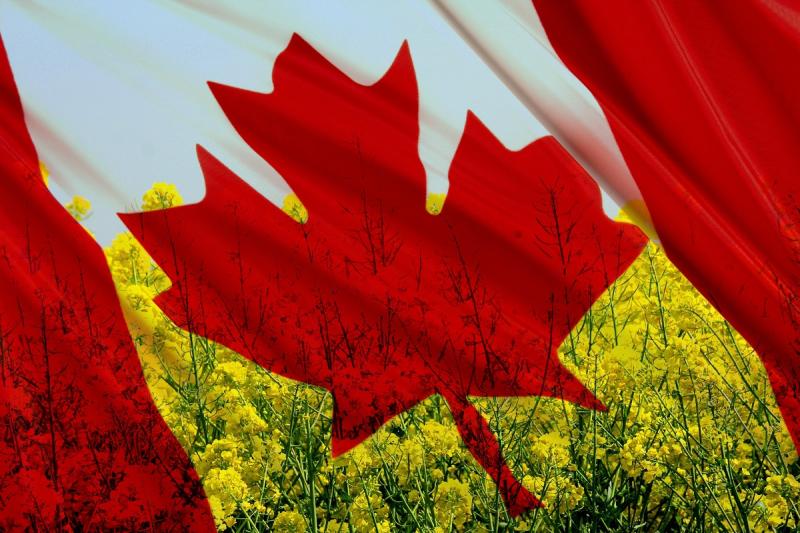
Trade and import/export concerns
Ottawa Life Magazine: Is there not a contradiction when China invites Canada to participate in these initiatives?
China has halted nearly $5 billion worth of Canadian agricultural imports including canola, beef and pork products in the past year. The Canadian agriculture sector is increasingly concerned about their ability to access the Chinese market with their products, with some describing it as an uncertain market. You say come to China and do business, but Canadian Canola shipments to China have been halted and Canadian meat products were temporarily halted until just this week.
Ambassador Cong Peiwu: The Canola question is about food safety and protecting the Chinese consumer. Canola was intercepted because of quarantine pest issues and we revoked permits of relevant Canadian companies. With regards to the meat from Canada, in June this year, China found that there were obvious safety loopholes in Canada’s certificate issuance system of meat exports.
However, the Canadian side proposed an action plan as a corrective measure for certificate issuance and delivery. After reviewing this proposal, we met the safety requirements and we are now proceeding again with this meat import.
For the Canola side, we are ready to stay in touch with the Canadian side regarding the technical issues that remain. China is second largest trading partner of Canada. So, we welcome safe and high-quality Canadian products into the Chinese market. We are ready to stay in touch with Canadians over technical issues regarding canola.
Ottawa Life Magazine: So, are you suggesting that the Canadian canola shipments could be a possibility again for import to China?
Ambassador Cong Peiwu: Canola is a food safety issue for China. The safety precaution is in line with our laws and international practices.
Ottawa Life Magazine: We appreciate the response, but this is a significant issue for Canadian farmers who have lost $2.8 billion in exports to China over these ‘safety and technical issues’. To clarify, are you saying once the Canadian canola industry addresses these technical issues, China will buy Canadian canola again?
Ambassador Cong Peiwu: It is a technical issue, but yes, hopefully this will work out.
Ottawa Life Magazine: Is China committed to doing more trade with Canada? As you know, Canada has been under some significant stress from the United States over trade matters with the ‘America first’ approach to trade. Canada was forced to renegotiate NAFTA and during the process the Americans slapped a 30 per cent tariff on Canadian steel products as part of their tactics to re-negotiate the agreement.
Ambassador Cong Peiwu: China and Canada share common language of rules based multinational system of free trade rather than protectionism. For the next 15 years, China will be importing even larger amounts of products — $30 trillion U.S. in trade and $10 trillion U.S. in services respectively — so that is huge. For tariffs, since joining World Trading Organization (WTO) we want to work to continue to lower tariffs and we want to make sure that foreign investment has better access to the Chinese market and improve our business environment.
We are making reforms that begin next year regarding the lawful rights for foreign companies: like lifting restrictions on foreign shares in futures companies, fund management companies and securities companies.
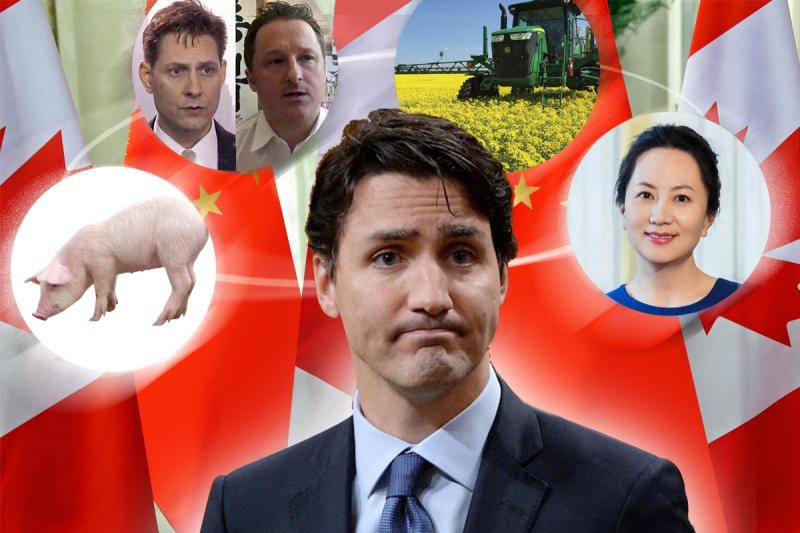
Bi-lateral tensions arising from the Meng Wanzhou arrest and detention
Ottawa Life Magazine: The Canada-China bi-lateral relationship has been very strained for the past year. Last December, Canadian officials detained Huawei senior executive Meng Wanzhou, in Vancouver. She is being held on a provisional arrest warrant, under the terms of an extradition treaty between Canada and the United States. Her extradition case is slowly making its way through the Canadian courts.
Ten days after her arrest, Canadians Michael Kovrig and Michael Spavor were detained in China on espionage allegations. Since then, China stopped buying large quantities of Canadian canola, and blocked Canadian meat imports and tightened up the screening of many other Canadian imports.
Many Canadians believe the Kovrig and Spavor arrests and the canola and meat issues are all tied to the Meng arrest and the refusal of the Canadian government to release her. Can you comment?
Ambassador Cong Peiwu: Overall, in almost 50 years of diplomatic relations between Canada and China, at least two important things have remained constant despite the ups and downs. The first is a healthy and stable bi-lateral relationship is in the mutual interest of both our two countries and peoples. The second is the principle of mutual respect and equality. This is the golden rule to ensure the relationship can move forward along the right track. China is following this rule and we hope Canada will take steps to do the same so we can move back to the normal track.
The Meng Wanzhou issue is a very serious political incident and the Canadian side abused a treaty regarding Meng and detained her. It is up to the Canadian side to release Madame Meng Wanzhou at once. The solution is very clear. We have urged the Canadian side on many occasions to take steps to free Meng and make sure she is traveling back to China safely. Only by doing so can we talk about moving the relationship back to the normal track.
Ottawa Life Magazine: And what about the Canadians Michael Kovrig and Michael Spavor? How long will the process be for Kovrig and Spavor — they have families here — they’ve been detained for a year and Canada has called for their release?
Ambassador Cong Peiwu: With regards to the two detained Canadians, they are accused of serious state security crimes: espionage and stealing intelligence and state secrets. They were detained by competent Chinese authorities and it is now in Chinese judicial system. China is a country of rule of law and they are suspected of serious crimes regarding national security. There is a judicial system in China and competent authorities are handling this sensitive issue in due course. China’s judicial sovereignty should be honored, and we do not expect other countries interfere with the judicial process in China.
Ottawa Life Magazine: Have you had any contact with Prime Minister Justin Trudeau, or Global Affairs Minister Chrystia Freeland since the Canadian election, regarding either Ms. Meng or Mr. Spavor or Mr. Kovrig?
Ambassador Cong Peiwu: I have respected a rule to limit my activity until after formal presentation of credentials which happened last Friday (Nov 1) — but I have had several meetings with my colleagues at Global Affairs and talked about bilateral relations and mutual understanding of how to handle sensitive issues.
Ottawa Life Magazine: The second largest Canadian diaspora is in Hong Kong and it has been under some tension in recent months. Can you comment on the current situation in Hong Kong?
Ambassador Cong Peiwu: Yes, over 300,000 Canadians are living in Hong Kong. What is happening now is turning into terrible situation with violence. The demonstrators throw gasoline bombs at police stations, smash shops, banks and transportation facilities, stabbed a legislator and attacked innocent civilians…. so, we must end the violence and restore order. Hong Kong is part of China and Hong Kong affairs are purely China’s internal affairs. The best and most helpful thing for Canada to do to ensure the rights of those 300,000 Canadians in Hong Kong is to send the message that the violence must end from those demonstrators.
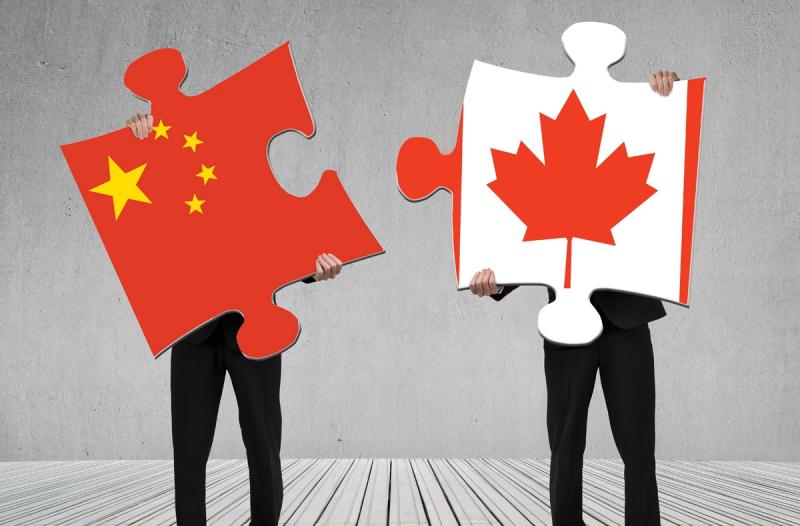
People-to-people cooperation
Ottawa Life Magazine: People-to-people relations are as important as government to government affairs. Does the government of China see Chinese-Canadian people-to-people cooperation in academia, culture and in business to business exchanges as an important part of our continuing relationship?
Ambassador Cong Peiwu: I believe that people-to-people relations are very important and are key to the future development of the bilateral relationship. I recently met with the famous Canadian architect Douglas Cardinal and he told me that he is traveling to China, in December. He has an interest in China’s many ethnic minority groups and he is interested in some of the similarities they may have in common with Aboriginal groups in Canada. Mr. Cardinal wants to explore this and contribute his thoughts and energy to this kind of cultural exchange, and this is most welcome. There are also many educational exchanges between universities and colleges. China is Canada’s second largest source country of overseas students and the third largest source country for tourists.
Ottawa Life Magazine: What are your key targets (objectives) in terms of Canada-China cooperation during your tenure as Ambassador?
Ambassador Cong Peiwu: I’m here to represent the Chinese government and China. The main purpose is to safeguard the national interest but, at the same time, I want to devote my time and energy to further deepen the mutual understanding and friendship between our two peoples.
I will be visiting across Canada and speaking to Canadians to ask their advice on how to advance our relationship, and I am looking forward to that.
Ottawa Life Magazine: To end, my final questions are: Canada-China, the future, are you hopeful?
Ambassador Cong Peiwu: There is great potential for cooperation between China and Canada. Our two peoples have friendly sentiments towards each other. Dr. Norman Bethune has long been a household name in China. Madam Isabel Crook, the Canadian emeritus professor of Beijing Foreign Studies University, was recently awarded the highest state honour for foreigners, the Friendship Medal, by Chinese government.


